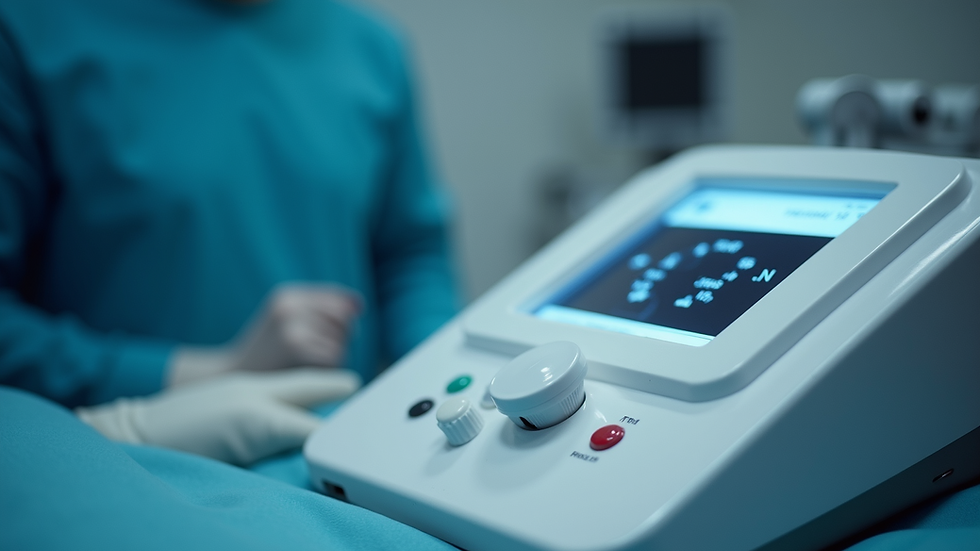How Testosterone Deficiency Impacts Men
- Fabio Castiglione

- Sep 29
- 4 min read
Testosterone is a vital hormone in men, influencing many aspects of health and well-being. When testosterone levels drop below normal, it can lead to a range of physical, emotional, and cognitive changes. Understanding how low testosterone effects manifest is crucial for recognising symptoms early and seeking appropriate treatment. This article explores the impact of testosterone deficiency on men, highlighting key symptoms, causes, and practical ways to manage this condition.
Understanding Low Testosterone Effects on the Body
Testosterone plays a central role in male development and health. It affects muscle mass, bone density, mood, energy levels, and sexual function. When testosterone levels decline, men may experience noticeable changes in these areas.
Some common low testosterone effects include:
Reduced muscle strength and mass: Testosterone helps build and maintain muscle. Low levels can cause muscle weakness and loss of bulk.
Increased body fat: Men with low testosterone often notice an increase in body fat, especially around the abdomen.
Decreased bone density: Testosterone supports bone health. Deficiency can lead to brittle bones and a higher risk of fractures.
Fatigue and low energy: Men may feel unusually tired or lack motivation.
Mood changes: Depression, irritability, and difficulty concentrating are common.
Reduced libido and erectile dysfunction: Testosterone is key to sexual desire and performance.
These symptoms can develop gradually and may be mistaken for normal ageing or other health issues. Recognising the signs early can help men seek medical advice and improve their quality of life.

Causes and Risk Factors of Low Testosterone
Several factors can contribute to low testosterone levels in men. Ageing is the most common cause, with levels naturally declining after the age of 30. However, other medical conditions and lifestyle factors can also play a role.
Key causes include:
Age-related decline: Testosterone production decreases by about 1% per year after 30.
Chronic illnesses: Diabetes, obesity, and kidney or liver disease can lower testosterone.
Hormonal disorders: Problems with the pituitary gland or hypothalamus affect hormone regulation.
Medications: Certain drugs, such as steroids and opioids, can reduce testosterone.
Injuries or infections: Damage to the testicles or infections like mumps can impair hormone production.
Stress and poor lifestyle: High stress, lack of sleep, and unhealthy diet contribute to hormonal imbalance.
Understanding these risk factors helps men and healthcare providers identify potential causes and tailor treatment plans effectively.

How to Fix Low Testosterone in Men?
Addressing low testosterone involves a combination of lifestyle changes, medical treatments, and ongoing monitoring. The right approach depends on the severity of symptoms, underlying causes, and individual health status.
Lifestyle Modifications
Exercise regularly: Strength training and aerobic exercise can boost testosterone naturally.
Maintain a healthy weight: Reducing excess body fat improves hormone balance.
Eat a balanced diet: Include plenty of protein, healthy fats, and micronutrients like zinc and vitamin D.
Manage stress: Techniques such as meditation and deep breathing help lower cortisol, which can suppress testosterone.
Get enough sleep: Aim for 7-9 hours per night to support hormone production.
Medical Treatments
Testosterone replacement therapy (TRT): Administered via injections, gels, patches, or pellets, TRT can restore testosterone to normal levels.
Address underlying conditions: Treating illnesses like diabetes or thyroid disorders may improve hormone levels.
Review medications: Adjusting or changing drugs that affect testosterone might be necessary.
Monitoring and Follow-up
Regular blood tests and medical check-ups are essential to track testosterone levels and assess treatment effectiveness. Men should discuss potential risks and benefits of therapy with their healthcare provider.

Emotional and Cognitive Effects of Low Testosterone
Beyond physical symptoms, low testosterone can significantly impact mental health and cognitive function. Men with testosterone deficiency often report:
Mood swings and irritability: Hormonal imbalance affects neurotransmitters linked to mood regulation.
Depression and anxiety: Low testosterone is associated with higher rates of depressive symptoms.
Memory problems and difficulty concentrating: Cognitive decline can occur, affecting work and daily activities.
Reduced motivation and confidence: These changes can lower overall quality of life.
Addressing these emotional and cognitive effects is an important part of managing low testosterone. Psychological support, counselling, and sometimes medication may be recommended alongside hormone therapy.
Lifestyle Tips to Support Healthy Testosterone Levels
In addition to medical treatment, men can take proactive steps to maintain or improve testosterone levels naturally. These include:
Avoid excessive alcohol consumption: Alcohol can lower testosterone production.
Quit smoking: Smoking negatively affects hormone levels and overall health.
Limit exposure to environmental toxins: Chemicals like BPA and phthalates may disrupt endocrine function.
Stay socially active: Positive social interactions can improve mood and reduce stress.
Regular health screenings: Early detection of health issues helps prevent testosterone decline.
By adopting these habits, men can support their hormonal health and reduce the impact of testosterone deficiency effects.
For more detailed information on symptoms and treatment options, visit testosterone deficiency effects.
Taking Charge of Your Health
Low testosterone can affect many areas of a man's life, but it is manageable with the right knowledge and support. Recognising symptoms early, seeking medical advice, and making healthy lifestyle choices are key steps to improving well-being. Whether through natural methods or medical intervention, men can regain energy, confidence, and vitality by addressing low testosterone effectively.







Comments